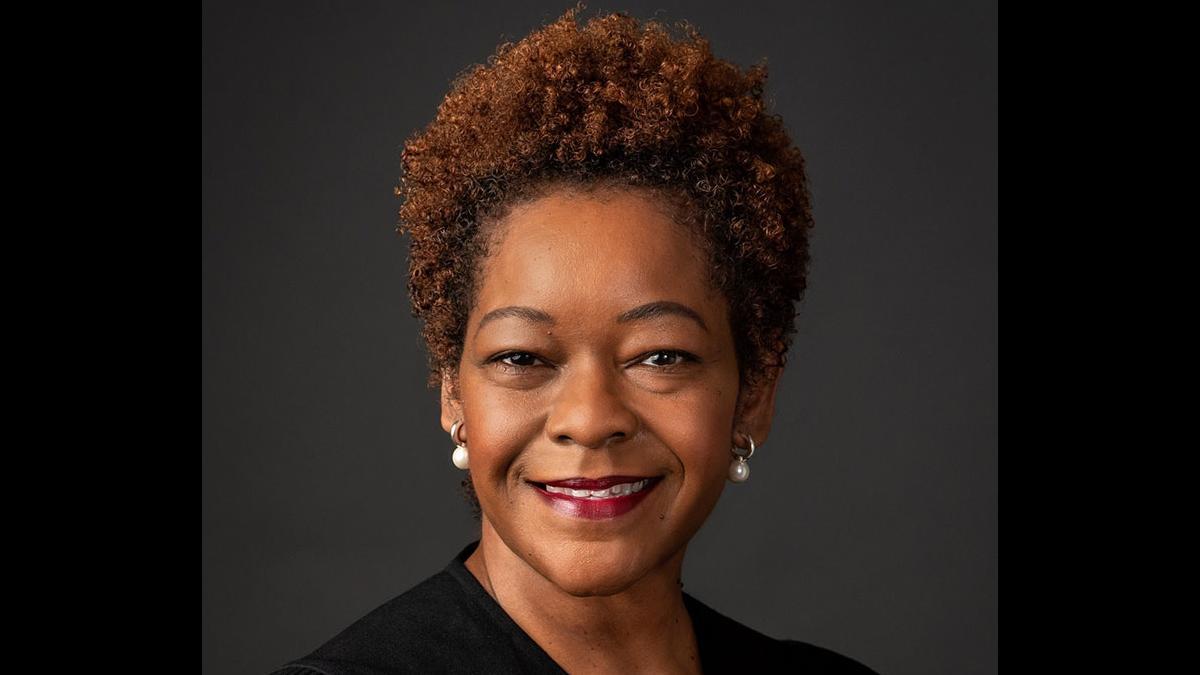Nursing homes in Illinois may be able to use executive orders issued by Gov. JB Pritzker at the onset of the Covid pandemic in 2020 to ward off lawsuits from plaintiffs demanding payment for elderly family members' illness and death from Covid, as well as other kinds of negligence-related claims, for as long as the emergency order remained in effect, the Illinois Supreme Court has ruled.
On Oct. 18, the state high court rejected an attempt by Illinois' powerful personal injury trial lawyers to sidestep Pritzker's executive order to bring lawsuits over a severe Covid outbreak at the Bria nursing home in west suburban Geneva in early 2020.
The 6-1 decision was authored by Justice Lisa Holder White. She was joined in the majority by Chief Justice Mary Jane Theis and justices Elizabeth Rochford, P. Scott Neville, David K. Overstreet and Mary K. O'Brien.

Illinois Supreme Court Justice Joy V. Cunningham
| Facebook.com/JoyForJustice
Justice Joy V. Cunningham dissented.
Writing for the majority, Justice Holder White said the majority believed Pritzker's order should be read "broadly" to shield nursing homes and other health care facilities should be shielded from lawsuits claiming injuries caused by "ordinary negligence" if the health care facility operators can show injuries, illness or death occurred while "'rendering assistance' to the State by providing health care services" to address the pandemic emergency.
Holder White and the majority said the executive order does not extend to provide protections to claims that injuries, illness and death resulted from "willful misconduct."
In dissent, Justice Cunningham said she believed that reasoning goes too far, and would improperly seal off lawsuits for the kinds of ordinary injuries and claims with which trial lawyers have historically hammered nursing homes in Illinois, outside of public health emergency periods.
The case came before the state high court earlier this year, after an Illinois appeals panel also ruled nursing homes could try to use Pritzker's executive order to shut down lawsuits arising from injuries and death that occurred while the order and its successors were in effect for a brief period in the spring and early summer of 2020.
The governor had first issued the order on April 1, 2020, as part of his second wave of emergency orders following the onset of the Covid-19 pandemic.
The order was intended to allay fears from nursing home operators at that time that they would not be subjected to a blizzard of lawsuits over patient deaths caused by the novel virus, which posed a disproportionate risk of severe illness and death for the elderly and infirmed, the populations typically served in such congregate health care settings.
Those concerns were magnified by other emergency orders issued by the governor restricting how and when patients could be moved.
Despite the order, attorneys from the personal injury firms of Levin & Perconti, of Chicago, and Meyers & Flowers, of suburban St. Charles, filed lawsuits against Bria Health Services over the deaths of residents at Bria's Geneva nursing home in 2020.
According to published reports, during an outbreak at the Geneva Bria facility in the spring of 2020, public health officials confirmed 132 Covid cases at the home and 27 deaths, as of June 2020.
The lawsuits asserted Bria administrators and staff did not take proper precautions to slow or prevent the outbreak, including allegedly failing to conduct sufficient Covid testing and allegedly failing to establish proper protective protocols for staff.
Bria responded by arguing Pritzker's emergency orders should block the lawsuits.
A Kane County judge initially sided with the plaintiffs, but agreed to allow the superior courts to address the extent of the protections afforded by Pritzker's order.
A three-justice panel of the Illinois Second District Appellate Court sided with the nursing home. While they agreed the order didn't provide nursing homes with "blanket immunity," the appellate justices said the orders still should be read to possibly shield nursing homes and other health care facilities from the kinds of claims brought in the lawsuits against Bria.
The plaintiffs then appealed to the Illinois Supreme Court.
Together with the Illinois Trial Lawyers Association, the plaintiffs argued Pritzker's order should be read only to shield nursing homes for efforts the nursing homes implemented directly in response to the pandemic, and not to the kinds of negligence claims presented by the plaintiffs in the cases against Bria.
The high court majority, however, said that reading of Pritzker's orders is too narrow to afford the nursing homes the protection a plain reading of the orders shows.
The majority said the protections apply to "ordinary negligence" claims that may have arisen against the nursing homes during the effective period of the governor's orders, so long as the nursing homes can prove they were "rendering assistance" to the state's efforts to address the pandemic.
Justice Holder White and the majority said their ruling doesn't necessarily mean Bria will be able to defeat the lawsuits. But the majority said plaintiffs will need to show Bria wasn't "rendering assistance" as they claim.
Justice Cunningham, however, said her colleagues went too far in their ruling, saying the decision could have unintended consequences that reach farther than the law should permit.
"The narrow legal question presented in this appeal is whether health care facilities are immunized for negligent conduct that was entirely unrelated to the act of providing COVID-19 assistance to the State," Cunningham wrote.
"By answering that question yes, the majority bars recovery for any number of deserving plaintiffs throughout the State, for reasons that have nothing to do with the COVID-19 disaster declaration."
